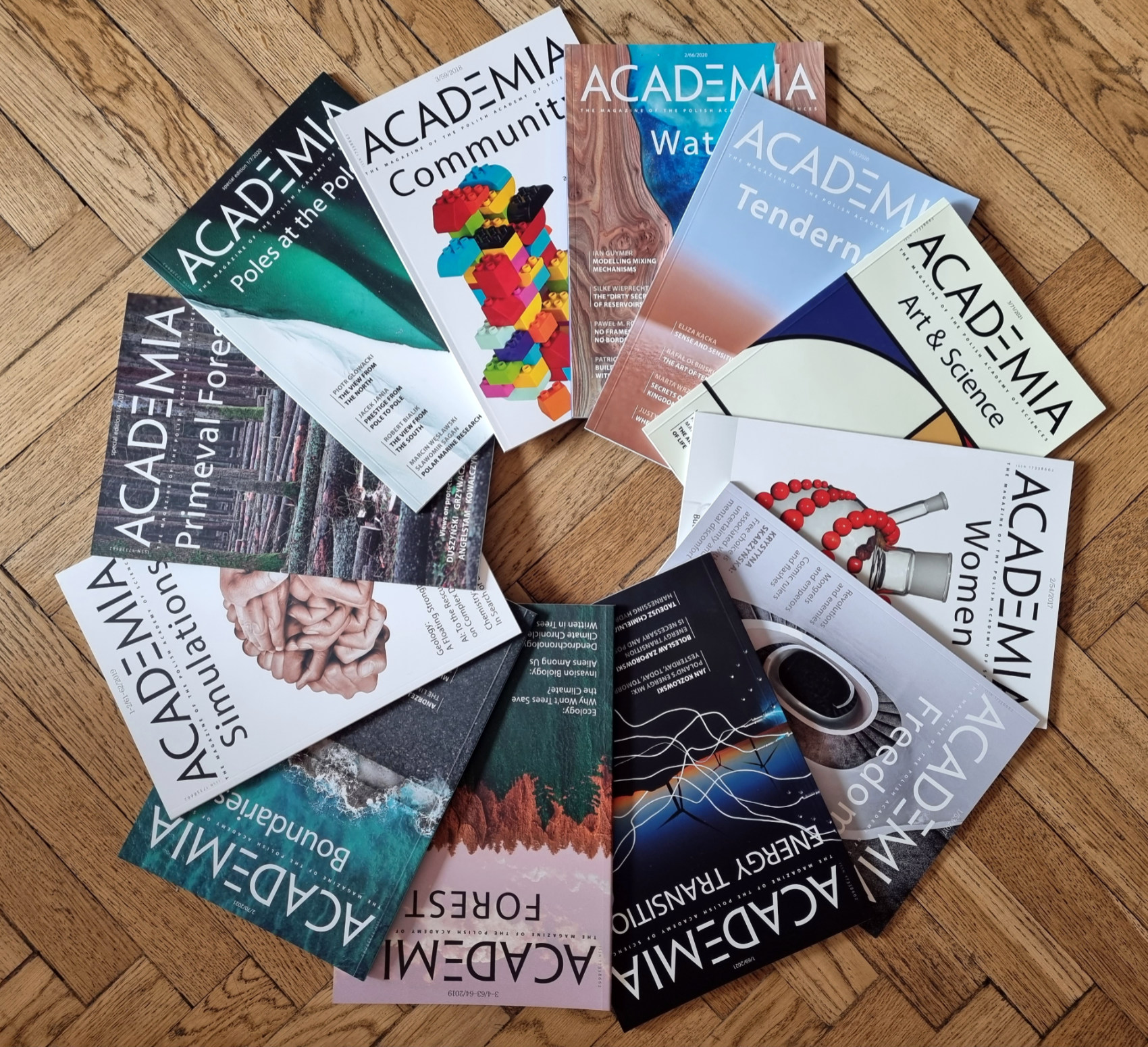The many faces of science
This year the Polish Academy of Sciences is celebrating 70 years since its foundation. It is an opportunity for in-depth reflection on the essence of science and the legitimacy of the academy. What is science today? What should be the role of science in the globalized world? You can read about it in the new issue of the Academia magazine.
“The latest issue of the magazine has a rather perverse title,” writes Prof. Jerzy Duszyński, PAS President, in the introduction to “Science for Science.” “We write in it not only about values of science but also about the people of science and science for the people, given in an accessible form. This latter aspect seems to be particularly important today, when amidst the multitude of information, it is not easy to find a reliable source of knowledge, proven knowledge”, he adds.
The ideal of an academy
In this issue, we will go back in time to learn about the assumptions that guided the first founders of ancient academies. Prof. Antonio Loprieno, President of ALLEA, takes a macro-level approach and wonders what role the European academies have to play today. As he says in an interview: “In the world of European academies, reduction leads to loss of impact, whereas critical mass attracts even more excellence. So, my appeal to your political leaders is this: in Poland’s interest, make the PAS even stronger than it already is, and the country as a whole will benefit!”
In individual texts, the Polish Academy of Sciences is subjected to a more detailed analysis. Some authors recall how PAN has changed over the decades and indicate which aspects make up PAS a recognizable brand.
Challenges facing science
The authors also take a close look at the academy. Prof. Iwona Hofman in her text "A Community of Scholars" draws attention to such concepts as identity, reputation, or subjectivity in the context of the Polish Academy of Sciences. We will also learn more about the multifaceted internationalization of the Polish Academy of Sciences and the changes introduced in science by the increasing participation of women in research. In this issue of Academia, we will also look to the future, for instance, what goals, reforms, and challenges await the Polish Academy of Sciences in the coming years.
Current threats
What should be the role of science and scientists in times of ignorance, disinformation, and populism? Writes about it, among others Prof. Andrzej Szahaj in the text "Science in the Times of New Obscurantism", where he considers possible reasons for the popularity of anti-scientific theses and the decline in confidence in science.
We will also learn more about distinguishing between manipulation, false and misleading information on the internet, and how social media can be used to deliver scientific content.
About Academia
The Academia is a scientific magazine addressed to the general public, propagating achievements of Polish scientists here and abroad. Authors of articles in Academia explain their topics in a way that is accessible not only to all sorts of academics but also to students, pupils, and all other readers interested in scientific topics for the general public. Since 2005 the magazine is published both in Polish and English.
Each issue of "Academia" has its main theme, for example:
Since 2015, entire issues and individual articles can be read online at https://journals.pan.pl/academiaPAS. Special editions are published one or two times a year. They are devoted to current and most important issues such as Smog, Climate Change, Poles at the Poles.
Source of information and photos: Polish Academy of Sciences

